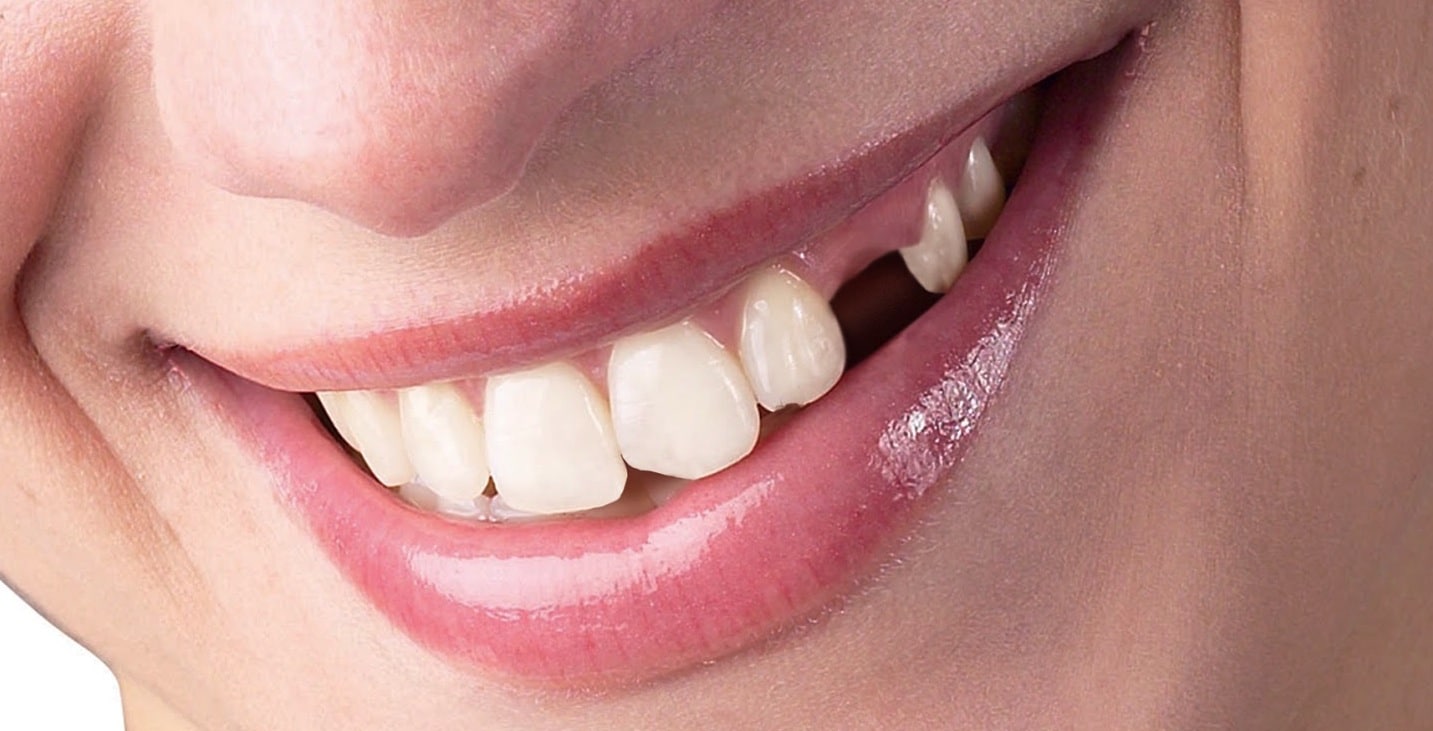There’s a good chance that at least once in your life, you may experience a severe toothache. By far the most common cause of toothache is dental decay, which is when bacteria have damaged into the inner part of your teeth where the nerve lives. By this time, the treatment to rectify the problem is more extensive because the bacteria invaded deep inside the tooth. To remove these bacteria, there are usually 2 choices, either the tooth is removed or the tooth is cleaned in the process called root canal treatment. The latter is more time consuming, has more ‘immediate’ cost to it and it’s not as well understood by the patient. This is why I often see my patients made a rushed decision to remove their teeth when they are in pain. Most of the time I obliged, but I cringed at the thought of what follows because I’ve treated enough patients of all ages to realize what are the real issues when the teeth are removed, in the short and long term.
Before we go into the details, there are 2 points I need to make:
- There’re situations where tooth removal is the only option and there isn’t a choice to be made.
- I believe the most important thing is to avoid getting to the point where you’ll have to make this difficult decision in the first place.
Now, here are some of the things patients should know before making a decision to remove their teeth.
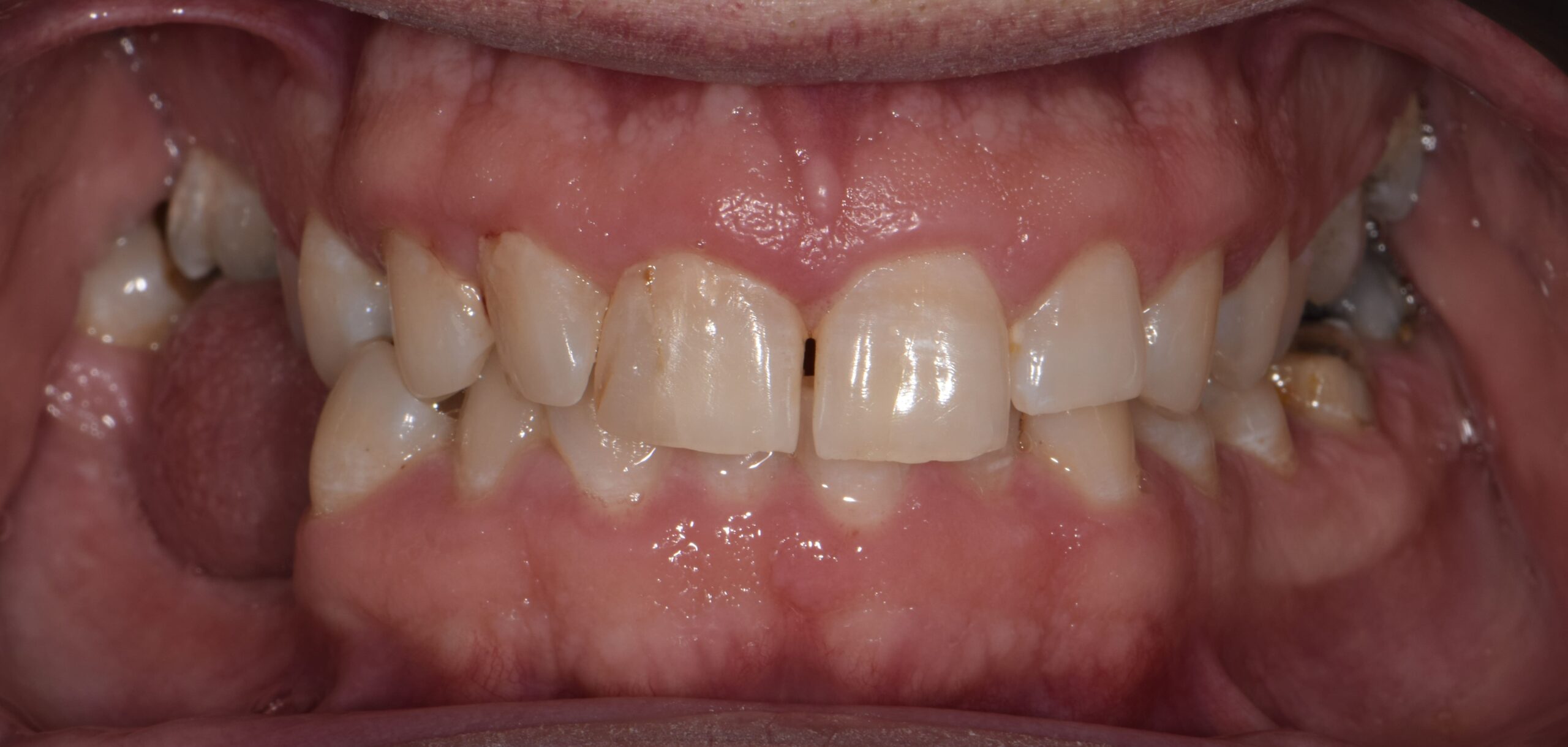
After teeth were removed (lower left side of the picture), it created a bone defect in the jaw.
The cost
Patients often compare the immediate cost of tooth removal to root canal treatment and chose tooth extraction. They forget to take into account the cost of replacing the tooth that was taken out, especially if it was a front tooth that is visible. The replacement options, be it denture, bridges or implant, will cost comparably to root canal treatment or more, not to mention that any ‘artificial’ teeth dentist put in your mouth will never be as good as your natural teeth. A few of my patients got caught when looking at the cost after the tooth was removed but by then, there was no going back.
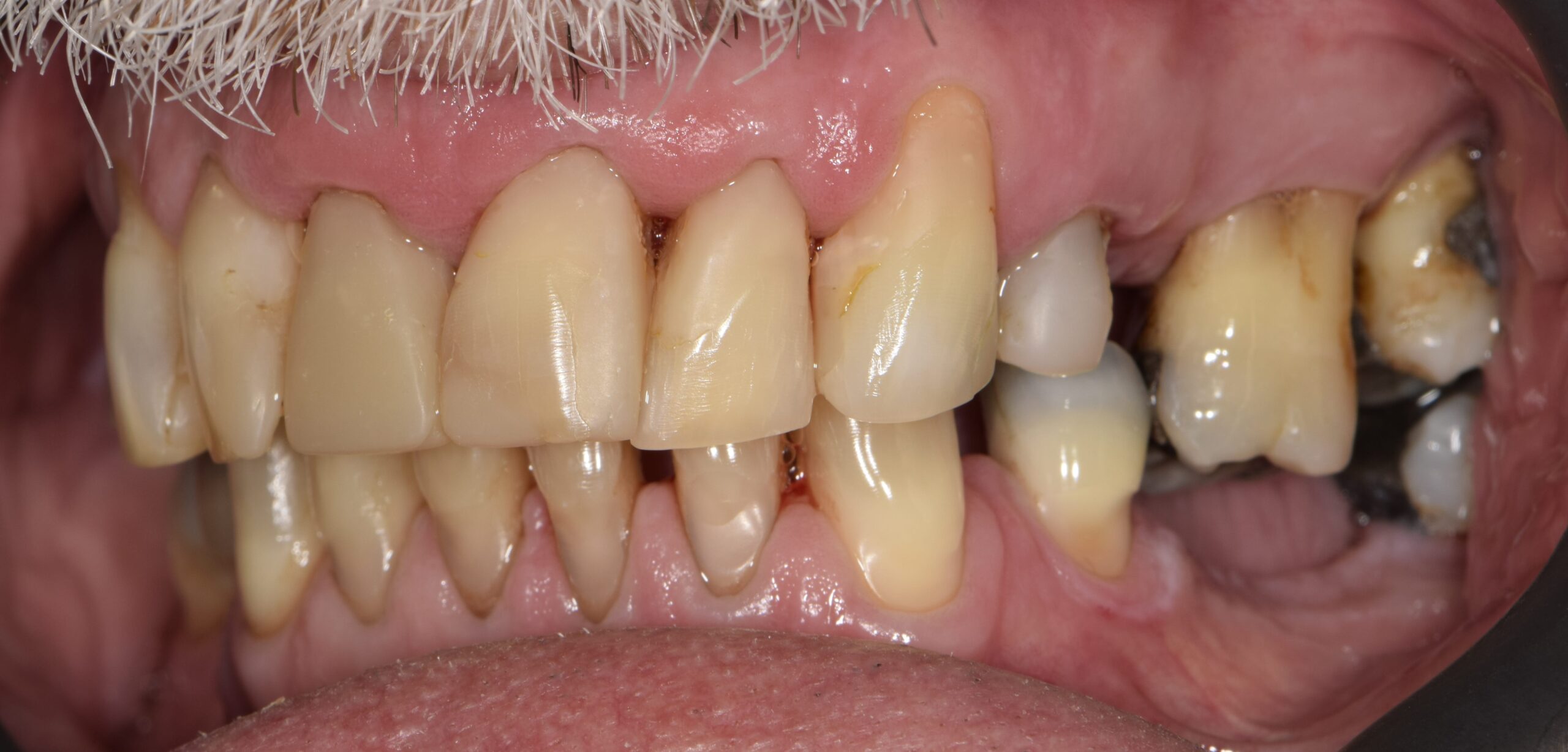
As the upper tooth dropped into a gap, it compromised the bone and gum attachment around it.
The defect
When a tooth is removed the bone underneath is resorbed or “dropped”. This is a natural occurring process and the jaw bone gets thinned out. This is the reason why dentists often delay making dentures or bridges in some instances for a few months until bone recontouring is ‘more’ stable (This process actually continues for many years). Otherwise, you’ll find a significant gap appearing underneath the replacement tooth some months later. Apart from difficulty making artificial tooth replacement due to the defect, bone loss can affect other neighbouring teeth adversely, which leads to my next point……
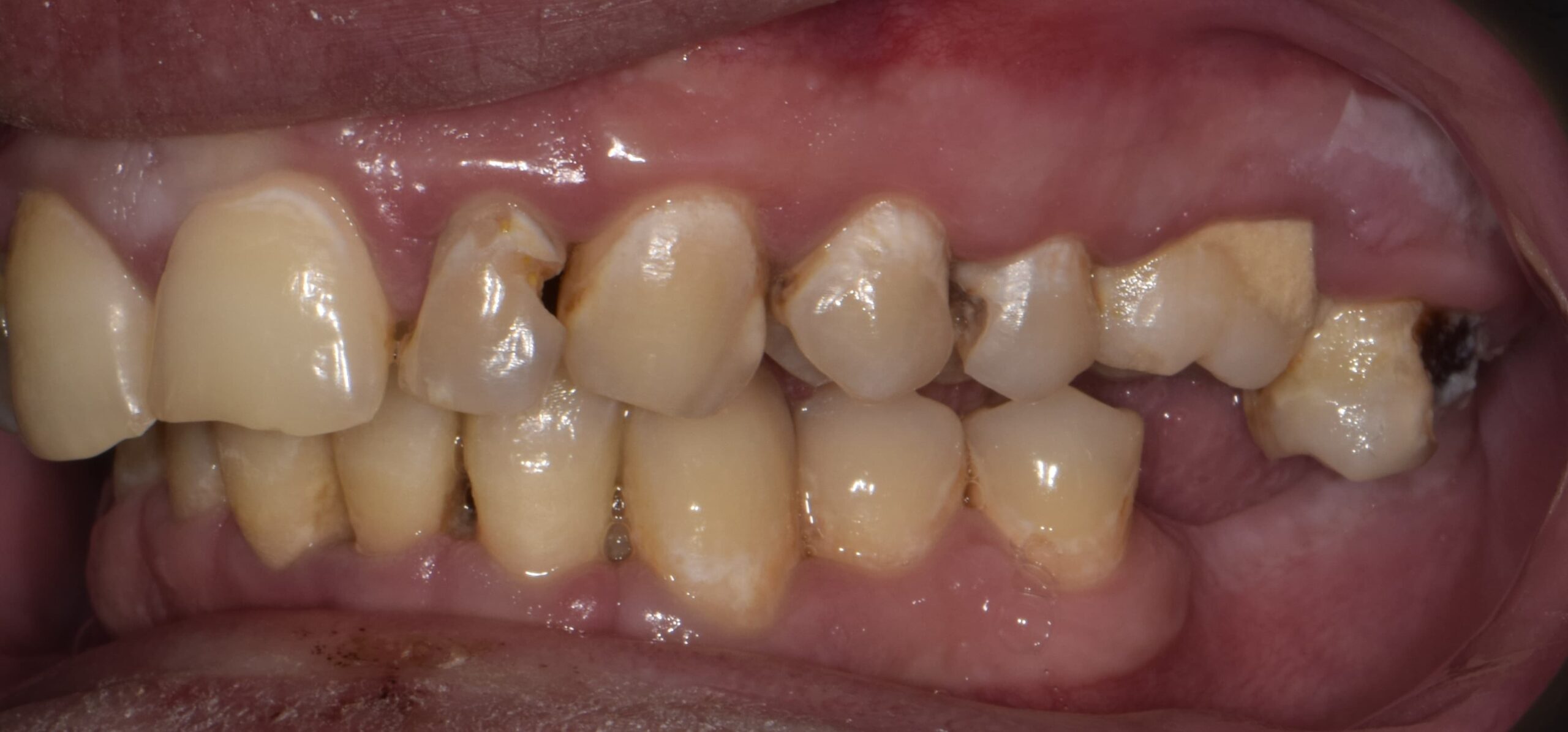
The upper back tooth dropped and bit into the gum of the lower jaw.
The bite
Our teeth are programmed to be in contact of each other. When there’s a gap, the opposing tooth will continue to erupt or ‘drop’ until it touches something, be it a different tooth or gum! The neighbouring teeth will start tipping towards the gap, creating more gum defect and hard-to-clean area. This leads to more diseases and further tooth loss, not to mention bite distortion. Words cannot explain as well as some of the pictures in this blog. It’s a shame when I see a tooth be taken out in a perfectly aligned mouth because I can imagine the problems the patient will face many years down the road. To fix it when the problem has already occured will often require braces. This is why it became a growing trend in recent years for adults to straighten their teeth. But remember the old cliché, prevention is always better than cure.
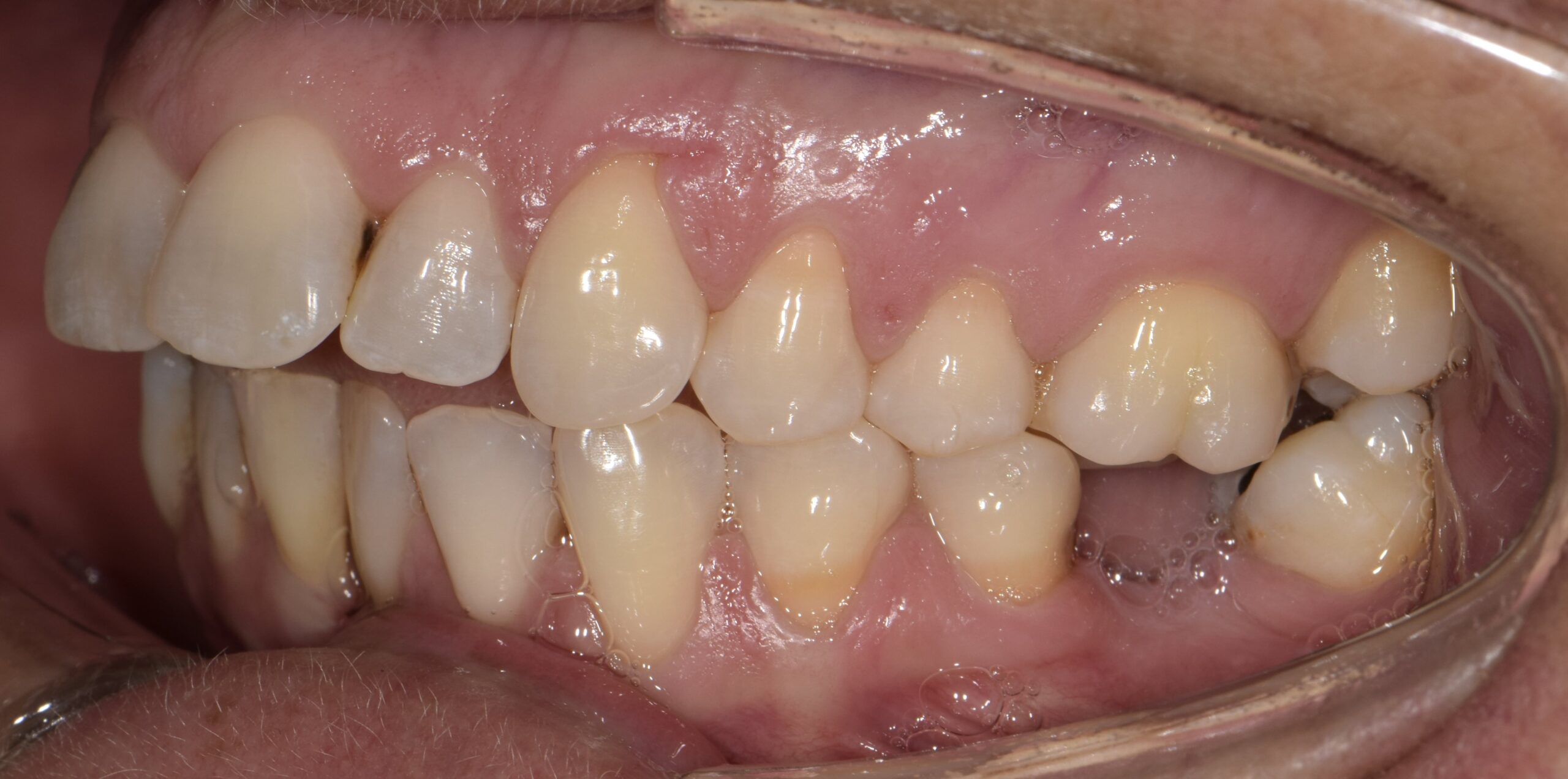
All surrounding teeth collapsed into the space created by tooth removal.
Each individual patients and situations are unique and your dentist is the best person to help guide your decision. But in the end, it’s your responsibility to make the final call so the take home messages are “prevention is most important”, “be informed” and “never make a rushed decision when you’re in pain”.
To your healthy smile.
Dr. Supa
Supa Dental, Melton.



